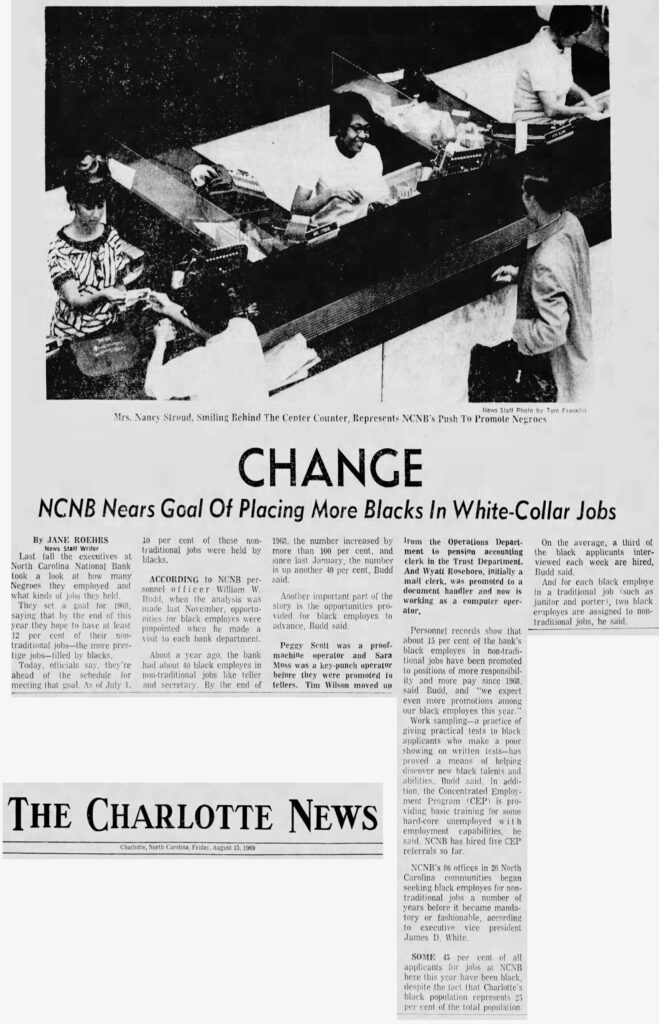
March 19, 2024
“Show up and come prepared to do the work.”
Nancy Stroud offered that synopsis of how she and a number of the other women on this morning’s panel took the entry-level jobs they were offered in the ’60s and ’70s as banks first began hiring Blacks for career positions, and made something much more of the opportunity. They rose through the ranks and by dint of effort and keeping their eyes on the prize helped transform commercial banking for the 21st Century.
Speakers offered occasional hints of the challenges they faced. They were more candid about the support they got from co-workers (“we’ve got your back”) that allowed them to stick at it.
Viewers will have to juggle the old and the new a bit: The artifacts described as central to ’60s operations employees’ work – keypunch, card reading machines, handwritten loan payment books, etc. – are no more. Today’s banking industry has become a technology-driven business. But in that transition, viewers will notice that the employees who thrived were the ones taking care of customers, relating to them as persons, sometimes even watching as customer attitudes towards women and African-Americans in the work force softened.
Speakers included:
– Avis Hedgepeth, a Charlotte native who was instrumental to integrating the computer operations of an ever-growing Bank of America;
– Sandra Heartley Peters, retired City Executive for Mechanics & Farmers Bank and later senior deputy director at Fannie Mae’s NC Community Business Center;
– Nancy Stroud, a Bank of America vice president for general bank support and later marketing director for First Legacy Community Credit Union;
– Rosa McAfee, Bank of America Marketing Risk Operations Manager; and
– Jewell Hoover, U.S. Deputy Comptroller of the Currency for the Western District retired, and former chair, Foundation for the Carolinas.
Some of the speakers brought with them clippings and notes from their years in bank regulation and banking. Here is a reprodution of a 1969 Charlotte News article from Nancy Stroud’s collection concerning early milestones in opening employment opportunities to African-Americans.
